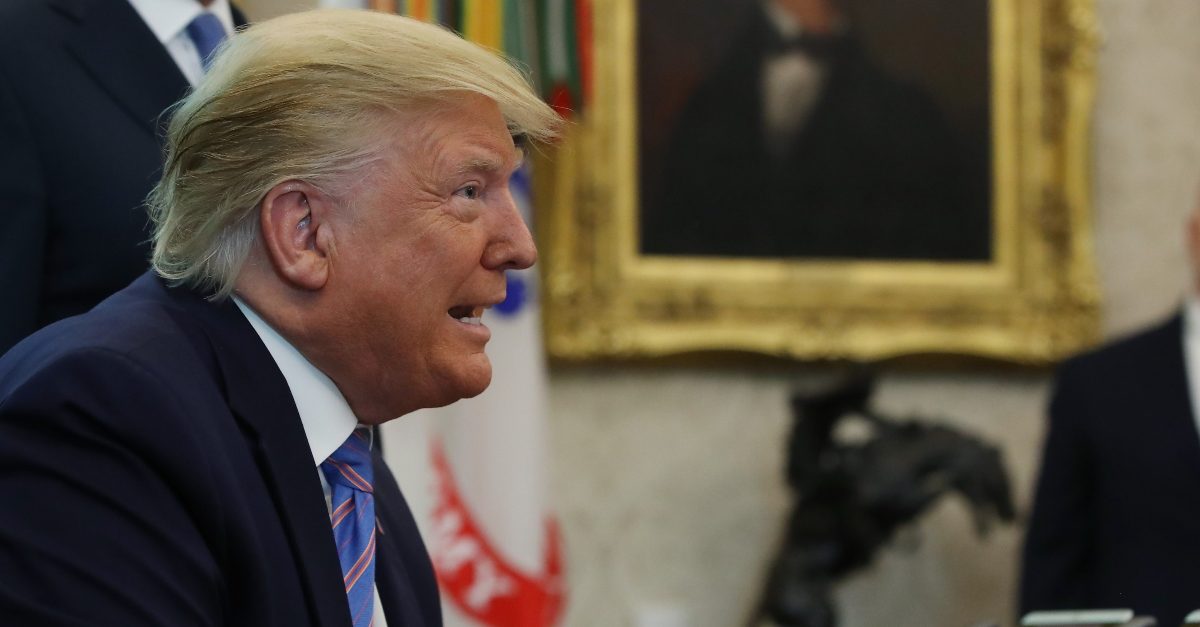
President Donald Trump’s White House counsel on Sunday told the House Judiciary Committee that the White House would not be participating in an upcoming hearing on the historical and constitutional basis for impeachment.
In a five-page response to Committee Chairman Rep. Jerrold Nadler (D-N.Y.), attorney Pat Cipollone disparaged the proceedings as “baseless and highly partisan,” stating Trump had “done nothing wrong” and claiming the “purported impeachment inquiry” violated “all past historical precedent, basic due process rights, and fundamental fairness.”
However, similar to his previous widely criticized letter to Congress in October, legal experts were quick to say that Cipollone supported his arguments with erroneous facts and historical inaccuracies.
Cipollone argued that the procedures governing the Committee’s inquiry violated the President’s “longstanding constitutional right” to exert executive privilege, claiming both Presidents Richard Nixon and Bill Clinton asserted “numerous privileges” during their impeachment proceedings.
Highlighting the fundamental false premise at play, Professor Marty Lederman of Georgetown University Law Center noted that none of the documentary evidence Cipollone cited in support of his assertions involved executive privilege being claimed during an impeachment proceeding.
Lederman, who teaches constitutional law, explained that history actually directly contradicts Cipollone.
“Indeed, Presidents from [George] Washington on down have acknowledged that executive privilege is inapplicable–or in any event outweighed by congressional need–in impeachment inquiries,” he wrote, holding out [President James] Polk’s 1846 statement confirming his point. “[Polk] ‘cheerfully admitted’ that with ‘a view to the exercise of [the impeachment] power,’ the House ‘has the right to investigate the conduct of all public officers under the Government,’ and its power ‘in the pursuit of this object would penetrate into the most secret recesses of the Executive Departments. It could command the attendance of any and every agent of the Government, and compel them to produce all papers, public or private, official or unofficial, & to testify on oath to all facts within their knowledge.’”
Polk went on to state that “all the archives and papers of the Executive Departments, public or private, would be subject to the inspection and control of a committee of [Congress] and every facility in the power of the Executive be afforded them to enable them to prosecute an investigation.”
“I’m not aware of Johnson/Nixon/Clinton ever invoking privilege in such proceedings–or any President (until now) claiming that Polk was wrong,” Lederman concluded. He also called Cipollone’s letter “deeply troubling.”
NYU Law Professor Ryan Goodman reiterated Lederman’s lesson on the source material for Cipollone’s arguments.
Former Department of Justice attorney Eric Columbus called the assertions “weasely” for “trying to count the Ervin Committee and Cox/Jaworski/Starr as part of the impeachment process.”
You can read the Cipollone letter and the material he cited to below.
Cipollone Letter by Law&Crime on Scribd
Cipollone Citations: CRS Presidential Claims of Executive Privilege_ History, Law, Practice, And Recent Dev… by Law&Crime on Scribd
[Image via Mark Wilson/Getty Images]